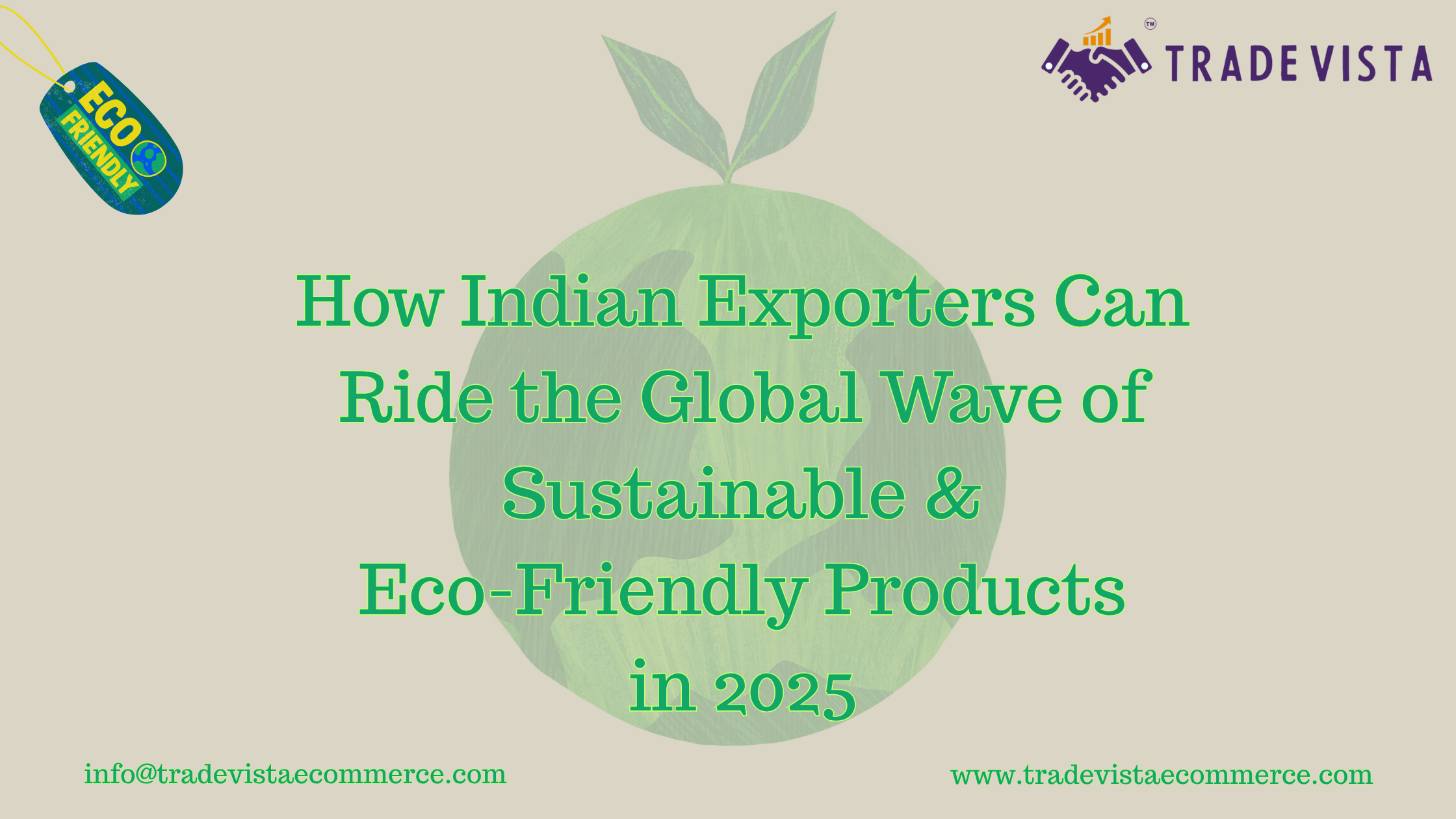Did you know the global market for sustainable products is projected to surpass $1 trillion by 2030? With its rich traditions of organic farming, herbal wellness, and handmade crafts, India is perfectly positioned to become a major supplier. This blog explores how Indian exporters can tap into the booming global demand for eco-friendly products and seize opportunities in 2025.
Why the Global Demand for Sustainable Products Is Surging
Across the world, conscious consumerism is rising. Buyers are seeking ethical, biodegradable, recyclable, and planet-friendly products. According to recent reports, Europe, the US, and the Asia-Pacific regions drive this demand, fueled by government regulations, corporate sustainability goals, and eco-conscious customers. The push for zero waste, carbon neutrality, and ethical sourcing reshapes B2B and B2C markets.
India’s Unique Advantages in Sustainable Exports
India holds several unique advantages:
- Organic Textiles: India is one of the world’s largest producers of organic cotton and offers textiles like khadi that blend tradition with sustainability.
- Biodegradable Packaging: Innovative startups and manufacturers produce compostable packaging materials for global supply chains.
- Herbal & Ayurvedic Wellness: With the rising global interest in natural wellness, Indian Ayurvedic and herbal products are in high demand.
- Sustainable Handicrafts: Artisanal products from recycled, natural, or eco-friendly materials are popular among conscious buyers.
- Plant-Based Food & Beverages: India’s vegetarian food sector is well-aligned with the global plant-based movement.
Additionally, government-backed incentives and MSME green initiatives offer financial and logistical support to exporters.
Top Export Markets for Indian Sustainable Products
Indian exporters should focus on markets like:
- European Union (Germany, France, Netherlands)
- United States & Canada
- Japan, Australia, South Korea
These regions have clear sustainability regulations and a strong consumer appetite for eco-friendly goods. Exporters can gain traction by aligning with buyer expectations, certifications, and green marketing.
How Indian Exporters Can Tap Into This Opportunity
To succeed:
- Identify Product-Market Fit: Research demand trends, buyer requirements, and market gaps.
- Ensure Certifications: To boost credibility, obtain necessary certifications like GOTS (organic textiles), USDA Organic, or Fair Trade.
- Leverage Global Platforms: List on B2B platforms like Alibaba.com, Amazon Global, or Etsy (for handmade goods).
- Build a Strong Brand: Highlight sustainability across your branding, catalogs, and packaging.
- Attend Green Trade Shows: Join global trade fairs and sustainability-focused expos.
- Partner with Export Promotion Councils: Use industry bodies for market insights, buyer connections, and policy updates.
Success Stories: Indian Exporters Doing It Right
- Organic Cotton Exporter from Gujarat: This SME secured major European contracts by combining GOTS certification with a compelling eco-story.
- Ayurvedic Beauty Brand from Kerala: Leveraging Alibaba.com, they expanded into Japan and Australia with sustainable packaging and eco-labeling.
These success stories show the power of certification, storytelling, and market positioning.
Challenges & How to Overcome Them
Exporters may face:
- Buyer Skepticism: Overcome by offering verified certifications and transparent supply chains.
- Supply Chain Issues: Solve with reliable logistics partners and contingency planning.
- Pricing Pressure: Offset with value-added services, superior quality, and clear sustainability advantages.
2025 is a golden window for Indian exporters to establish themselves as trusted, eco-friendly suppliers. The demand is high, the incentives are in place, and the global conversation is shifting towards sustainability. Don’t miss out — act now to position your business for long-term success.




